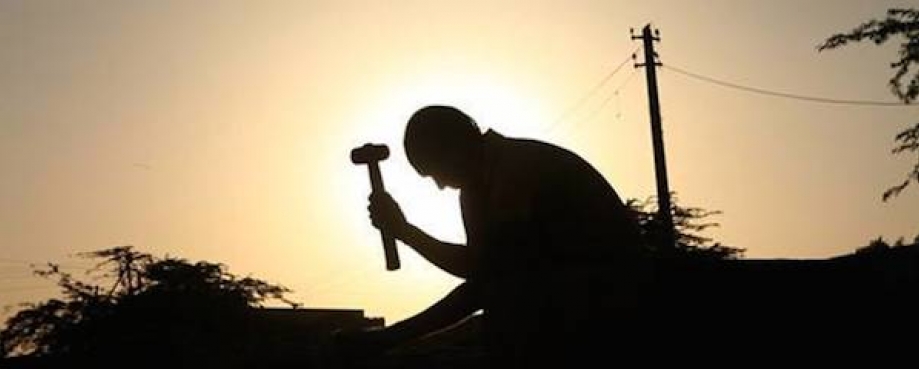
I recently presented our work in the sandstone sector of Rajasthan, India, to a cross-section of ETI member companies. At the end of the presentation, one member turned to me and asked “What does good looks like?”. Great question, but where to begin?
Of course, ultimately ‘good’ looks different depending on individual perspective – that is, until we begin to speak a common language. Until all parties involved agree and commit to a common goal, we will not feel like good is being achieved. In this case, a common language equals recognising and upholding very basic human rights as a minimum standard. Readers will recognise that ETI’s focus is on core labour rights; our Base Code is underpinned by at least nine of the 30 core declaration areas set out by the Universal Declaration of Human Rights.
Sandstone from Rajasthan is one of ETI’s prioritised supply chain programmes and focuses on improving working conditions and building multi-stakeholder capacity to address the most significant issues. The programme has the commitment of a number of our company members who specialise in the import of natural stone, along with NGO and trade union representation. The encouragement and cooperation from members’ suppliers (some of the leading exporters in natural stone from the region) and other local organisations has been critical in building our own understanding of the opportunities and challenges. It’s been even more significant to ensuring we are all speaking that same common language. Good business practices undoubtedly should seek positive engagement and contributions from all involved. Indisputably, we know that the right mix of good business practices can be good for business, and good for workers.
I recently visited Rajasthan, an arid state in north east India, and met with many of the people our programme is engaging with. My arrival into the main area of sandstone production is an experience that will stick with me forever. Unfathomable! Driving down one of the main belts of stone extraction and production in the state, you can’t help but be astonished as the landscape of quarries, stone yards and mountains of overburden continue to pass before your eyes for miles and miles. I found myself automatically wondering, how many workers does it take to extract all of this stone? And in this heat! An estimated 2 million people is the official starting figure for those engaged in quarrying in Rajasthan. Considering the highly informal nature of employment arrangements in the region, and the number of unregistered mines, the real figure is probably significantly higher.
During this trip, ETI hosted the biggest two day multi-stakeholder event to date in this programme. This was our first opportunity to bring a broad range of stakeholders together. As I stepped up to the podium, the initial wave of nerves and anxiety was replaced by delight and a real sense of progress. After working in the background since the programme’s inception, it was great to see a room full of people with diverse backgrounds and agendas, present for the same purpose – to discuss workers’ rights. The day was not occupied by questions such as: “Is there a problem? What problem?”. Rather, the dynamic conversations covered questions such as: “How do we address this? How can we work together? And who is missing from this discussion?”
We were no longer gathered to discuss what the issues are, but how we could collectively work together to begin to address these. With the UN Guiding Principles on Business and Human Rights as our guide, we are focused on promoting the business and human rights agenda within our discourse and actions. The timing is right. This June will mark three years since this landmark UN framework and its guiding principles were unanimous endorsed. I hope that part of what good looks like is to be able to evidence how such a framework can be implemented in practice.
So I come back to that original question, what does ‘good’ look like. Ultimately, one of ETI’s measures of success is that workers can advocate effectively for a better working life and where their rights are respected. This is what we’d like to see for Rajasthan’s sandstone workers – we may not have all the answers yet, but I’ll share what we learn along the way.
